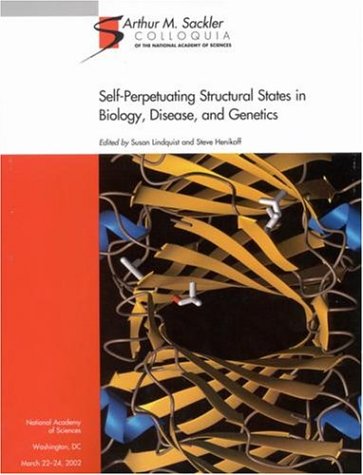

Most ebook files are in PDF format, so you can easily read them using various software such as Foxit Reader or directly on the Google Chrome browser.
Some ebook files are released by publishers in other formats such as .awz, .mobi, .epub, .fb2, etc. You may need to install specific software to read these formats on mobile/PC, such as Calibre.
Please read the tutorial at this link: https://ebookbell.com/faq
We offer FREE conversion to the popular formats you request; however, this may take some time. Therefore, right after payment, please email us, and we will try to provide the service as quickly as possible.
For some exceptional file formats or broken links (if any), please refrain from opening any disputes. Instead, email us first, and we will try to assist within a maximum of 6 hours.
EbookBell Team

5.0
68 reviews
ISBN 10: 030957045X
ISBN 13: 9780309570459
Author: Susan Lindquist, Steve Henikoff
Over the past half-century, the central dogma, in which DNA makes RNA makes protein, has dominated thinking in biology, with continuing refinements in understanding of DNA inheritance, gene expression, and macromolecular interactions. However, we have also witnessed the elucidation of epigenetic phenomena that violate conventional notions of inheritance. Protein-only inheritance involves the transmission of phenotypes by self-perpetuating changes in protein conformation. Proteins that constitute chromatin can also transmit heritable information, for example, via posttranslational modifications of histones. Both the transmission of phenotypes via the formation of protein conformations and the inheritance of chromatin states involve self-perpetuating assemblies of proteins, and there is evidence for some common structural features and conceptual frameworks between them. To foster interactions between researchers in these two fields, the National Academy of Sciences convened an Arthur M. Sackler Colloquium entitled'Self-Perpetuating Structural States in Biology, Disease, and Genetics'in Washington, DC, on March 22-24, 2002. Participants described new phenomenology and provided insights into fundamental mechanisms of protein and chromatin inheritance. Perhaps most surprising to attendees was emerging evidence that these unconventional modes of inheritance may be common.
Self-perpetuating structural states in biology, disease, and genetics
Transmission of prions
Conservation of a portion of the S. cerevisiae Ure2p prion domain that interacts with the full-length protein
Interactions among prions and prion “strains” in yeast
Identification of benzothiazoles as potential polyglutamine aggregation inhibitors of Huntington's disease by using an automated filter retardation assay
Chaperoning brain degeneration
Molecular chaperones as modulators of polyglutamine protein aggregation and toxicity
Studies of the aggregation of mutant proteins in vitro provide insights into the genetics of amyloid diseases
Sequence-dependent denaturation energetics: A major determinant in amyloid disease diversity
The insulation of genes from external enhancers and silencing chromatin
Histone H3 lysine 4 methylation is mediated by Set1 and promotes maintenance of active chromatin states in fission yeast
Changes in the middle region of Sup35 profoundly alter the nature of epigenetic inheritance for the yeast prion [PSI+]
Heritable chromatin structure: Mapping “memory” in histones H3 and H4
Does heterochromatin protein 1 always follow code?
Self-perpetuating epigenetic pili switches in bacteria
Histone H3 variants specify modes of chromatin assembly
Induction and maintenance of nonsymmetrical DNA methylation in Neurospora
Locus-specific control of asymmetric and CpNpG methylation by the DRM and CMT3 methyltransferase genes
RNA-directed DNA methylation in Arabidopsis
self- perpetuating
self perpetuating process is known as
a self-sufficient estate
self perpetuating example
self perpetuating system
Tags: Susan Lindquist, Steve Henikoff, Perpetuating, Structural